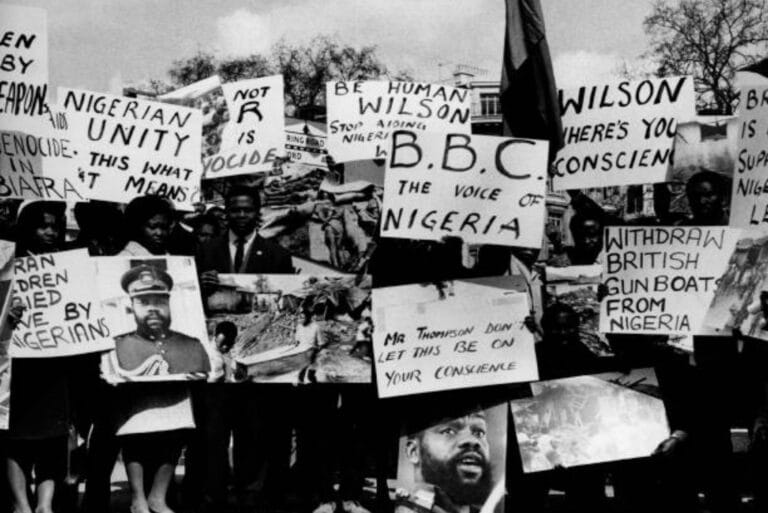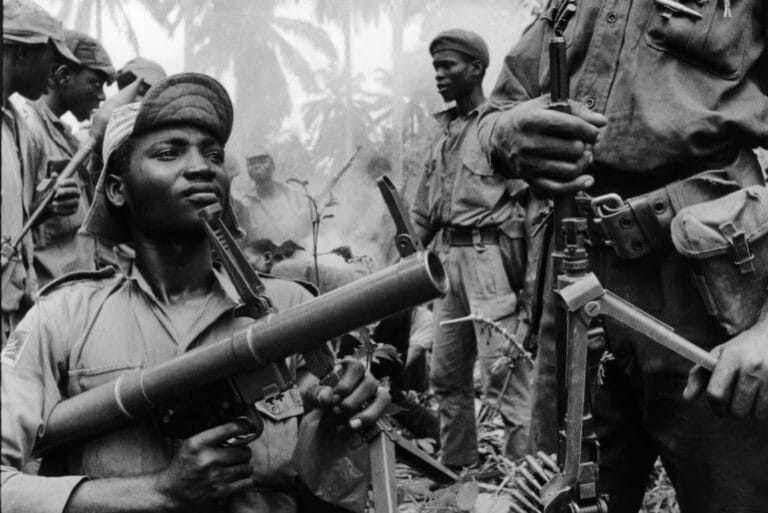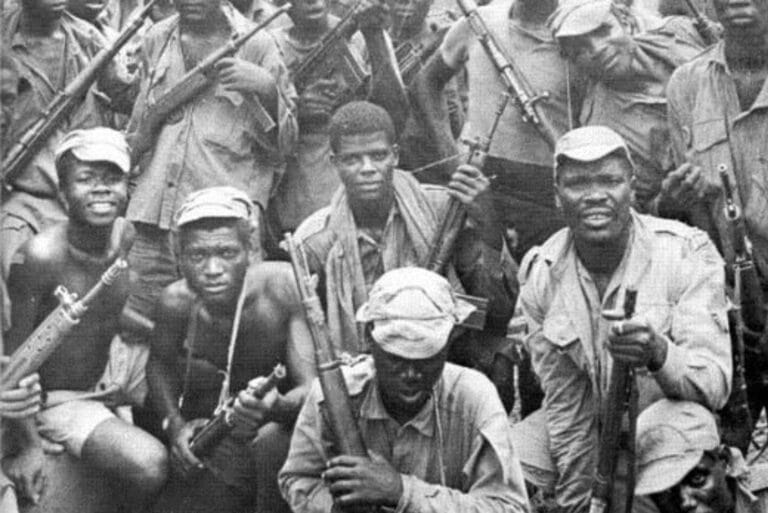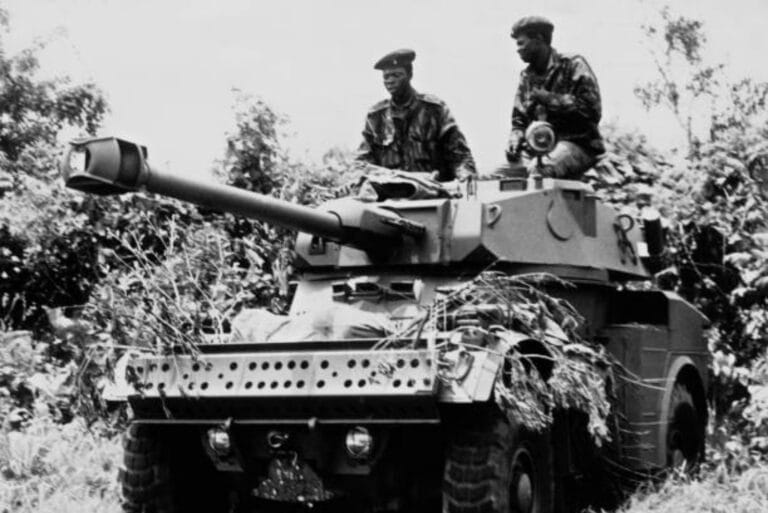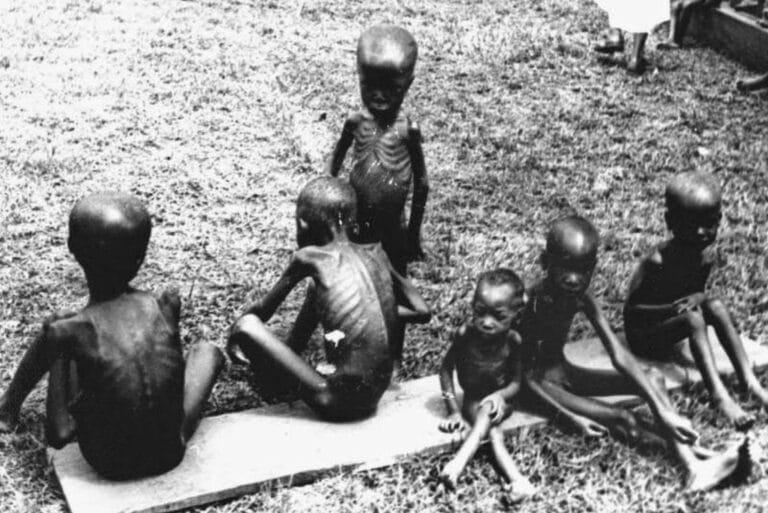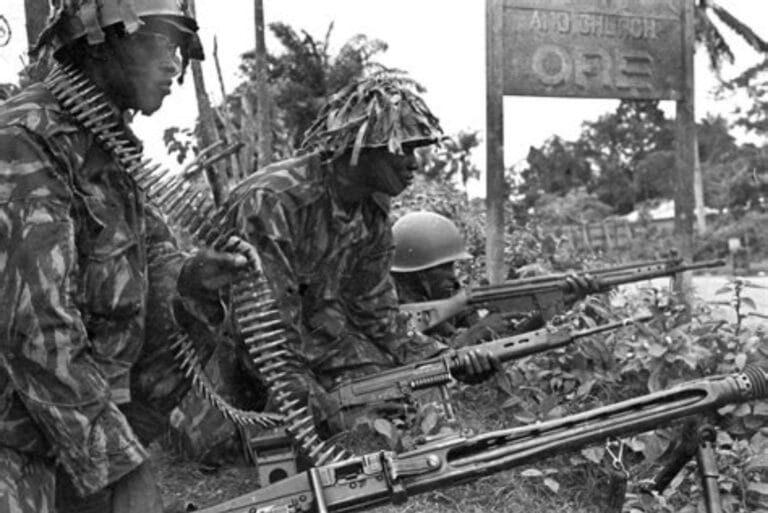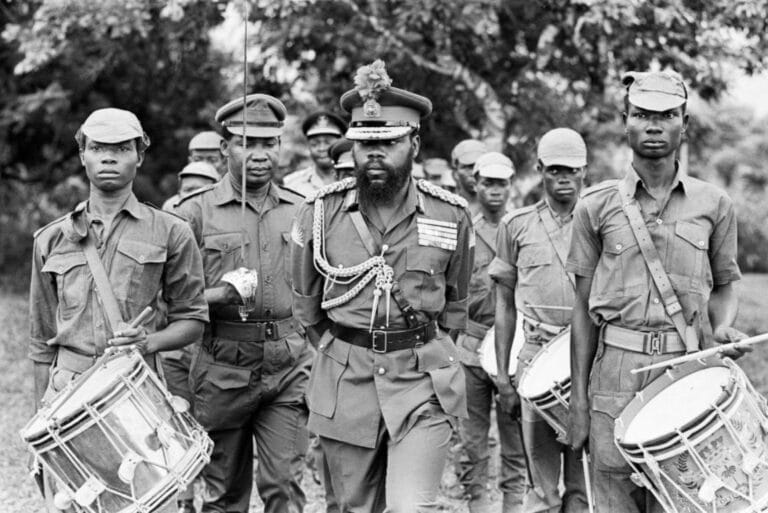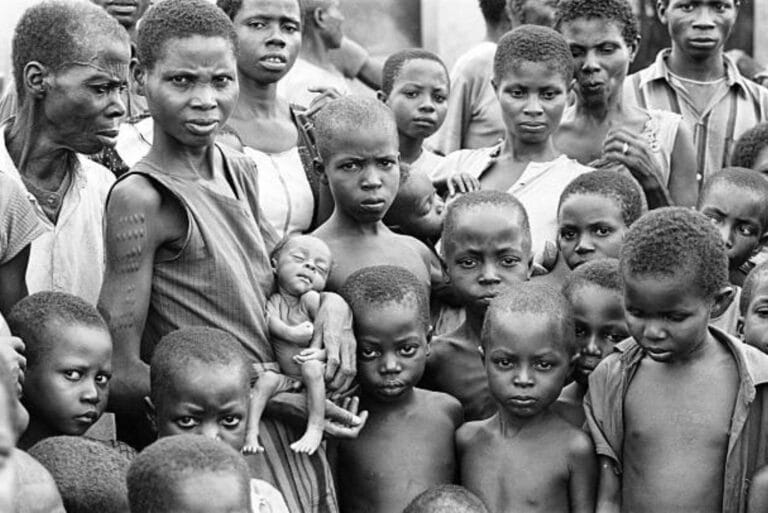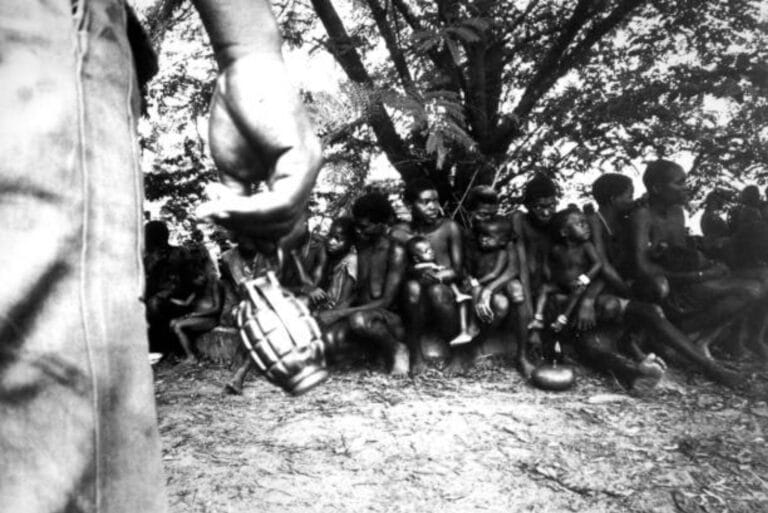A SHORT HISTORY OF THE NIGERIAN BIAFRA WAR
POLITICAL BACKGROUND
Nigeria gained independence from Great Britain in 1960 after over 200 years of colonial rule. A country with over 250 documented ethnic nationalities, after independence, it was basically governed by three hegemonic blocs in the Northern, Western, and the Eastern Region.
In the Northern Region, the Hausa-Fulani Oligarchy overwhelmingly made up of Muslim scholars and princes of various emirates held sway. From their ranks would come the earliest politicians and administrators. In the West, the Yoruba who had been privileged with early coastal access and contact and its accompanying Westernization were the dominant political group. In the Eastern Region, the Igbos, who had the majority population, had burst out, as it seemed, from the dense rainforest zone and had made outstanding leaps to put them at par with the other two hegemonies by the 50s. A fourth region, the Midwest Region, will be created in the 60s after a plebiscite.
Despite the leadership of the major ethnic leviathans, each of the regions had scores of minority ethnic groups, and sometimes they were not always on the best of terms with the regional leadership.
Given this tripod, the political climate was based on a lot of trade-offs, compromises and horse trading. Perceptions and allegations of domination were rife. The Eastern and Western Regions were geographically in the southern part of the country and in a twist of intrigue, both combined were smaller than the singular Northern Region. This gave the Northern Region a great advantage over the political fortunes and destiny of the country.
To further complicate issues, the Northern Region, despite the presence of ethnic minority Christian groups was dominantly Islamic while the Eastern and Western Regions were dominantly Christians. This difference in religion and its accompanying world views practically cast the fledgling state as two countries operating under one name. Under this prevailing climate, mutual suspicion and rivalry were the order of the day. Several ominous and troubling events occurred in the 60s which led up to and presaged the war. The first was a controversial census in 1962 which was boycotted in the Eastern Region. Within the same period, the dominant political leader in the Western Region, Chief Obafemi Awolowo was charged, tried, and convicted of treason!
His subsequent imprisonment created an atmosphere of enormous tension and acrimony which boiled over and led to widespread violence in his home base in the Western Region. In the 1964 federal elections, his erstwhile deputy revolted and pitched tent with the central government led by Abubakar Tafawa Balewa. In the hitherto seemingly impregnable Northern Region, a minority ethnic group, the Tiv, under an emergent political leader, Joseph Tarka, rebelled against the Hausa-Fulani patriciate who were in control of the Northern Region and Nigeria itself! Widespread riots and violence led the Prime Minister to call in the army. Several of the army commanders would later unveil as part of the January 1966 coup plotters. An incipient rebellion had also erupted in the Eastern Region too, led by Adaka Boro, but was quickly put down, in 1966. Earlier in the same 1966, about a month before the Boro rebellion, a group of middle ranking officers of the Nigerian Army led by Major Emmanuel Ifeajuna, had executed a coup and sacked the civilian government. Prime Minister Tafawa Balewa was killed! The coup saw the killing of several high- ranking politicians and military leaders mostly from the Northern Region. Unfortunately for the coup plotters, the military high command was able to wrest command from them. The then Supreme Commander of the Nigerian Army, Johnson Aguiyi Ironsi, a major-general assumed command of the government and proclaimed a civilian government.
He would appoint several other military officers to administer the 4 regions of the country. Ironsi was Igbo.
Subsequently, rumors started to circulate that the coup was an agenda by the Igbo ethnic group to forcefully take over and dominate the country. Ifeajuna was Igbo, in addition to his colleague, Major Nzeogwu, who is more widely associated with the coup. These rumors would inspire a
counter-coup six months later by Northern military officers which led to an unprecedented killing of army officers of Igbo and Eastern extraction. In addition to the July 1966 counter-coup, there were widespread pogroms orchestrated
by Northern military and civilian leaders that led to the killing of about 50,000 Igbos and other peoples of Eastern Region ethnicity in most Northern cities.
ABURI AND THE NIGERIAN VS. BIAFRAN WAR
The July 1966 counter-coup had killed off General Ironsi and a new government led by Yakubu Gowon; a lieutenant- colonel had assumed command. With the widespread killings that had gone on in the Northern Region targeting the Igbos and other Easterners, a crisis had developed between the federal military government led by Col. Yakubu Gowon and the regional military government in the east led by Col. Odumegwu-Ojukwu as both tried to navigate their respective constituencies. Eventually, the military government in neighboring Ghana, a contiguous West African country invited both military leaders to a conference in the city of Aburi to resolve their dispute. The Aburi meeting, held between 4th and 5th of January 1967, was essentially a constitutional conference. Certain agreements were then signed by both parties who then departed back to their various bases in Nigeria.
Unfortunately, immediately on arrival in Nigeria, Col. Gowon reneged on the Aburi Accords. Due to this repudiation, Col. Odumegwu-Ojukwu ultimately declared the Eastern Region as the Republic of Biafra on the 30th of May 1967.
On the 6th of July 1967, Col. Yakubu Gowon declared war on the Republic of Biafra, euphemistically calling it ‘a police action’!
The war will end after 30 months, on the 15th of January 1970 with the capitulation of the Biafran armed forces. Estimates of the dead range between 1 million to 3 million Biafran citizens, most of whom died due to starvation and diseases as the Nigerian government imposed an economic blockade on Biafra which made access to food impossible.
Most of the dead were women and children who died due to Kwashiokor and Marasmus.
Fill in the identity information on pid
form 1 & 2 correctly
Support the biafra memorial
database and make a
difference!
© All copyrights are reserved to the Biafra Memorial Database

